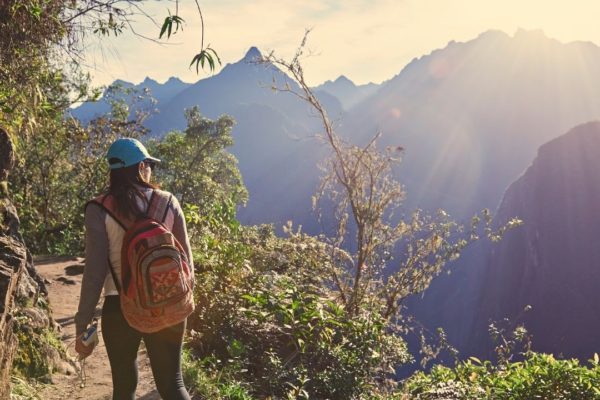
Tips for natives and travelers alike!
The main issue with exercising at a higher altitude is that there is less oxygen the higher you go- the cells are more spread out in the atmosphere and therefore your body will not be able to consume the same volume of O2 with each breath. This means that your heart has to work harder- and your body will compensate with a faster heart rate and breathing rate.
You may be traveling to a beautiful mountain area on your annual summer vacation or a resident trekking out on their first hike of the season- either way, follow these tips to reduce your risk of altitude sickness, burnout, or potentially serious complications:
- Pace Yourself: Begin more slowly than you would at a lower elevation. If you have the time, give yourself a day of doing lower level activities before going running or hiking on your trip. Once you begin exercising, start slowly. Give your body a chance to assess where it is at and acclimate accordingly. Listen to your body’s signals- the consequences of “pushing through” at 2000m above sea level are significantly greater than those below that level.
- Hydrate well: The mountain air may feel cool, but don’t be deceived about how much moisture you are losing. You need more water than you do at sea level- but you may not feel as thirsty. Choose a time and remind yourself or your group to drink water at certain intervals. Keep water handy and have a plan of how you will refill when you run out.
- Protection from the sun: You will be more highly exposed to the sun! Protect your skin and also the hydration you have taken in just below the surface of your skin.
- Quality Nutrition: You will be burning more energy than usual at higher altitudes. You may also not feel as hungry. Eat good meals prior to activity and refuel after as well. Don’t forget about handy snacks to keep in your backpack or held in your hand- you can eat small amounts along the way to keep your energy levels steady!
- If you don’t feel right, don’t continue: Symptoms may affect beginner hikers on vacation and high level athletes at any time. It is not a sign of weakness to take breaks or call it a day if needed- it’s a sign of maturity and expertise to know your body.
- Avoid alcohol: During the adaptation process, it is best to avoid that craft brew with dinner until you are sure how your body manages the changes it is going through.
It is also important to keep an eye out for those in your group or around you. In the case of a medical emergency, seek help immediately from a physician. Assist others as altitude sickness can cause cognitive changes and an individual may not be able to think clearly.
We wish you many fun adventures- be safe and have fun!
Author: Dr. Jillian Stecklein, Director of Physical Therapy Services with MyCatholicDoctor
Editor: Samantha Wright, Marketing Director with MyCatholicDoctor
Leave a reply
